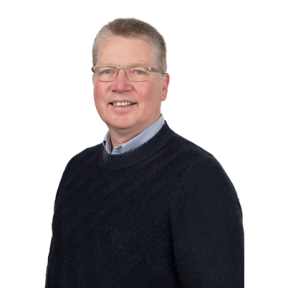My Cancer Navigator is also for healthcare professionals

My Cancer Navigator is also for healthcare professionals
You probably already heard of My Cancer Navigator. If not, it is about time! My Cancer Navigator is a personalised information service, launched by the Anticancer Fund. A few years ago, My Cancer Navigator started with answering therapy-related questions of people with cancer and their families. As time goes by, My Cancer Navigator appears to be useful to healthcare professionals too.
We initiated a dialogue with healthcare providers on how we could help them foremost. In an article in Domus Medica (1), we illustrate the added value we can offer and present a case study with a general practitioner. This article highlights the scientific research we did for this case, which enabled the physician to give his patient clear, evidence-based information.
Earlier this year we also presented our service at the annual meeting of the BSMO (Belgian Society of Medical Oncology) and to the Breast Unit of The Royal Marsden Hospital, one of Europe's largest cancer centres located in the UK. The feedback we received after these presentations was positive.
Towards a common goal
Every patient has the right to respectful care given by competent workers. This is recognised in the European Code of Cancer Practice (The Code), co-produced by a team of cancer professionals, cancer patients and patients advocates, and made available by the European Cancer Organisation. It sets out a series of ten rights, and in particular signposts what patients should expect from their health system, to achieve the best possible outcomes. Among them are the right to information and to shared decision making.
Despite good efforts, patients’ needs for information are not always met. In a survey performed by Cancer Patients Europe (CPE), patients say they often feel they do not have enough time to ask questions during their doctors’ visits. Sometimes patients worry that they might be perceived as “too critical” of their doctor when asking questions.
The lack of information in consultations remains an important barrier. My Cancer Navigator can help by providing patients with evidence-based information, so that they can discuss their situation more efficiently with their doctor. At the Anticancer Fund, we are strong advocates of shared decision making and we believe this is only possible if patients are well informed about their disease and treatment options.
Shared decision making is a way forward to a better understanding, because it builds strong relationships between providers and their patients. It has been shown to result in treatment plans that better reflect patients' goals, increase patient and physician satisfaction, improve patient-physician communication, have a positive effect on outcomes, and sometimes reduce costs. (3)
How we can be useful to healthcare professionals?
Healthcare providers can contact us directly to gather the necessary evidence-based information for a specific patient or they can inform their patients about our service. This can help them to discuss the therapy options with the patient, which is certainly useful in situations where guidelines for treatment are less straight forward or even lacking.
My Cancer Navigator can also be useful for general practitioners. Some patients have a lot of questions, and we cannot expect physicians to be fully aware of all the cancer guidelines, nor to dig into the literature for every cancer patient they encounter. General practitioners are also often involved in a multidisciplinary consultation. Their role is not to provide cancer care but as they are well placed to understand the needs and preferences of their patients, they are expected to deliver. Well, My Cancer Navigator is ready to support them in this.
Not convinced?
We sometimes get the comment that we might interfere with the role of the treating physician, hence we see some resistance, especially with health care providers that do not have experience with our service yet.
The fact that we do not give medical advice but try to help patients navigate through the immensity of information about cancer and cancer therapies, should be reassuring for every physician. A good relationship between people with cancer and their healthcare provider is extremely important, so we always do whatever possible to preserve that relationship. Of course, in extreme situations, like quackery, we will emphasize the lack of evidence and the potential for harm, also financial.
My Cancer Navigator is never a substitution for a medical consultation. It is a service that both healthcare provider and patient can use to come to the best outcome.
(1) Domus Medica is the general practitioner association for the Dutch speaking part of Belgium. In the March-April 2023 issue of their scientific journal, “Huisarts nu”, Bart Van de Velde, general practitioner, illustrates what My Cancer Navigator can do for physicians.
The article is built around a case report of a lung cancer patient who had several questions related to his proposed surgery. With the support of My Cancer Navigator, the general practitioner could provide the patient with relevant, evidence-based information. This allowed the patient to make the decision to go ahead with the proposed surgery.
(3) Fletcher et al. Patient Education and Counselling 2017


